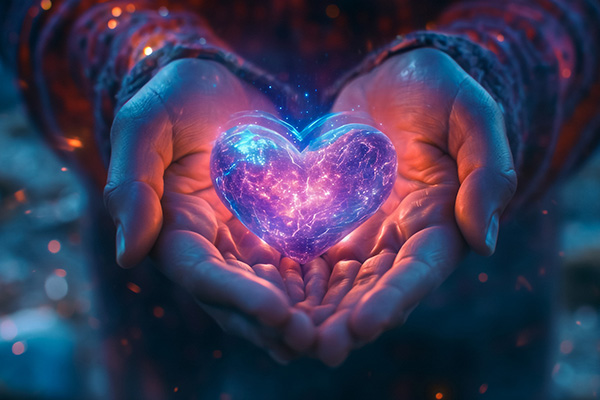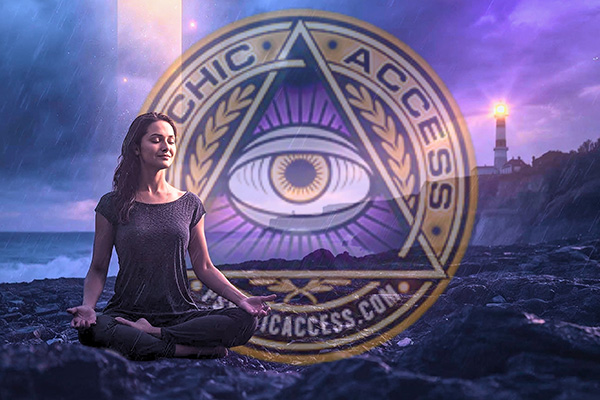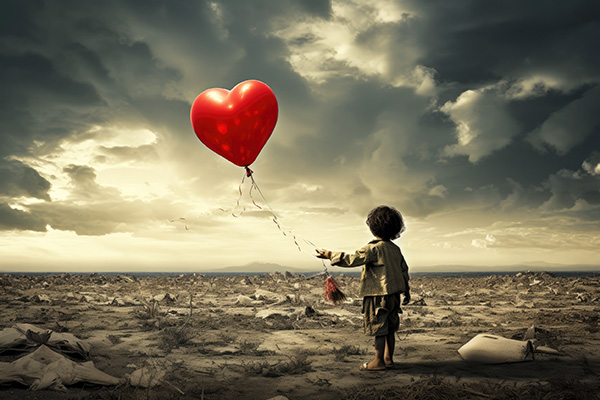society
Small Gestures Of Kindness In A Time Of Cruelty
 Many people are feeling anxious or uncertain in recent years with everything that has been happening in the world.
Many people are feeling anxious or uncertain in recent years with everything that has been happening in the world.
Some are fearful and others stressed or unsure how to act appropriately in these restless times. Some even act out in destructive or dramatic ways, taking their frustration out on others.
It is common knowledge that the digital age and social media has spawned a generation of computer warriors and online bullies who express their insecurities and fears, in often extremely mean and cruel ways, from the comfort of their living rooms and basements.
This savage lack of empathy and decorum has seemingly now spilt over into our streets and neighborhoods too.
It is easier for many to be critical and judgmental, to complain and argue, instead of facing facts, dealing with the truth and seeking lasting solutions.
Often not knowing the entire story, many people choose to see only see one side of things, while telling others off for disagreeing with their limited point of view. The computer has unfortunately given some people a platform to spread strife and hatred, instead of love, hope and kindness.
I pray that more people will strive to seek the truth and learn to look for the good and kind in others. Showing tolerance, patience and kindness is always the better, more open approach. And always remember that if someone attacks you directly, then it often means they are somehow struggling or hurting. It usually serves no real purpose to attack them back. Continue reading
Your Sacred Center Of Self-Love
 We all thrive on being loved. This is natural, of course, if you look back at humanity in history on an evolutionary level. Ancient people came together in tribes, families, and groups, to cultivate a place of safety, security, nurturance, and love.
We all thrive on being loved. This is natural, of course, if you look back at humanity in history on an evolutionary level. Ancient people came together in tribes, families, and groups, to cultivate a place of safety, security, nurturance, and love.
If you were different or stood out in any way, or even left the tribe, you were literally putting your own life at risk. This topic can be viewed from so many arenas, including psychological, spiritual, scientific, and psychic.
I often wonder how and when did we start defining ourselves by how others felt about us, and why did we believe that other’s thoughts about us were true? At what point in time did we allow others to define us? It’s as though we as humanity went into a deep trance.
We all know the phrase, “Love thyself first”. When did we forget this vital piece of information?
There are many ways we can come back in touch with this essential truth, but for the most part, our society does not support a lifestyle that would naturally lead us back to our sacred center of self-love.
How often do you take a moment to look in the mirror, or tell yourself, “I love you?” Most of us feel silly doing this, but it is very healing.
Have you ever met an older person who behaves in ways that are foolish or who just doesn’t give a hoot what anyone else thinks? My paternal grandfather used to throw dinner rolls across the table at me in fancy restaurants. While my parents and other family seated at the table would roll their eyes at my Grampy, I used to laugh hysterically!
Why Some Of Us Must Walk Alone To Find Our Tribe
 The topic of belonging comes up a lot lately in conversations with close friends, and it is often a concern for my clients when I do readings. A rise in loneliness appears to be a worldwide issue.
The topic of belonging comes up a lot lately in conversations with close friends, and it is often a concern for my clients when I do readings. A rise in loneliness appears to be a worldwide issue.
A conversation I had with a Spanish family recently was truly food for thought for me. We spoke about the disconnect with people in general, but the family in question strives to maintain family meetings and chats over meals, even though the younger ones spend more and more time on their phones.
One of the younger family members, told me that having a sense of community is part of his family’s religious practice. He makes a conscious effort to be disciplined about phone use when the family comes together. Hopefully, he will educate more of his peers about the importance of being present for in-person connection.
Personally, I have always tended to shy away from group gatherings, but I must say that I have been impressed by the warmth of the locals here in Spain, and their desire to include me in their community.
A few years ago, when my husband died just before Christmas, my Spanish friends in the farming community where I lived at the time told me, in no uncertain terms, that I would be joining them for Christmas and New Year’s family gatherings. I told them I’d prefer to stay home, especially considering the snow the previous Christmas that had confined us to our property for a few days.
Not A People Person, Or Pleaser, And That’s Okay!
 I have had clients tell me that they feel something is wrong with them, because they don’t like to be around people. They prefer solitude.
I have had clients tell me that they feel something is wrong with them, because they don’t like to be around people. They prefer solitude.
Others feel disconnected when around people, or it makes them feel smothered. People make them feel drained, or they feel out of their element.
If you are someone that does not like to be around people, or feels a sense of disconnect when in large groups, or even just engaging with others, fear not! I have some very good news to share with you.
It is my hope and prayer that this information will help you to stop being so hard on yourself when it comes to your social preferences. You do not need to feel guilty for not wanting to slap on a “happy face” and pretend to be someone you are not.
There is nothing wrong with you in my opinion. There is a simple reason why you don’t enjoy being around other people so much. The reason is that you have been to this planet many times before and basically you have “been here done this,” as it were.
Okay, so you don’t feel like being around your fellow humans. What to do? Tell yourself this, “it is okay that I don’t want to engage with others.” Then tell yourself, “I love myself just the way I am and now see the beauty in me that I never did.
But instead of judging myself, or thinking there is something wrong with me, from this day forward I promise to allow myself to embrace the freedom of placing myself where I feel comfortable, and free, and at peace.” Continue reading
Finding Calm And Clarity With Psychic Access
 These days, our devices overflow with superficial noise, while our hearts and minds long for meaning, calm, and a sense of hope and purpose. The world has become so much louder, faster, and more uncertain since we offered our first readings 20 years ago.
These days, our devices overflow with superficial noise, while our hearts and minds long for meaning, calm, and a sense of hope and purpose. The world has become so much louder, faster, and more uncertain since we offered our first readings 20 years ago.
We asked our team of psychics and mediums what they sense around the current state of the world, and the feedback was almost unanimously the same: the energy of the current moment feels dense, heavy, and for some even muted…like a global fatigue.
But this is not an intense energy shift that has struck suddenly, like we experienced back in 2007 with the global financial crisis. Instead, these days, there seems to be more of a quiet exhaustion that seeps into everyday life and weighs us down.
Economists and politicians may measure the current state of the world in numbers and votes, but for our team of spiritual experts it simply feels like an “energy recession.” A collective depletion of trust, enthusiasm, and inner peace.
At PsychicAccess.com, we deeply understand this atmosphere because, it is partly our job to monitor the hidden pulse beneath the world’s surface and sense what’s happening beyond everyday reality.
We engage with loyal clients all over the world every day, who rely on us for guidance and inspiration, so we must stay energetically up to date and deeply aware to always be of service to them. Continue reading
Be Your Own Light In Times Of Darkness
 We’ve been facing dark days and challenging times across the world in recent years, no matter where we live. But the future is much brighter than it may seem, and that light of hope begins with you.
We’ve been facing dark days and challenging times across the world in recent years, no matter where we live. But the future is much brighter than it may seem, and that light of hope begins with you.
With social media and constant news feed updates, mostly centered around negativity, disaster, conflict, or tragedy, many of us feel overwhelmed these days. These are especially not easy times for the spiritually conscious person and the highly sensitive.
Our generation is being bombarded with a stream of distressing information and content, much of which includes falsehoods and fearmongering. Children today are exposed to more in grade school than some of us were after we graduated and entered the workforce. That’s not always a good thing, but it also means they’re growing up faster, and with the right guidance, they can grow up wiser.
When people talk about “the good old days,” they’re usually thinking about how much simpler life seemed in the past. I remember my grandparents saying such things long before there was the internet, smartphones, or AI. So, I guess every generation has its own reasons for nostalgia, and this sentiment is nothing new in the digital age.
That said, some of us today still grew up without television or even radio, and lived through the full evolution of the current digital age. Many elders still feel disconnected from how rapidly things have changed. But there’s beauty in that too. Each generation carries wisdom, and now, more than ever, we need to blend that wisdom with the tools of today to create a better path forward for all of us.
Why Our Souls Cannot Afford A Lack Of Empathy
 Life has a way of weaving unexpected lessons into even the most ordinary or practical situations. Sometimes what begins as a business transaction or a casual encounter becomes a doorway into something far more meaningful, a reminder of the deep human connection we are all longing for and the healing power of simple empathy.
Life has a way of weaving unexpected lessons into even the most ordinary or practical situations. Sometimes what begins as a business transaction or a casual encounter becomes a doorway into something far more meaningful, a reminder of the deep human connection we are all longing for and the healing power of simple empathy.
I recently found myself in a situation that reminded me of this truth in the most unexpected way.
I am in the process of selling two homes in different states, which has been quite challenging. Anyone who has sold property knows how stressful and complicated it can be…much less two properties at the same time!
Over the past couple of months I had spoken to quite a few realtors and interested buyers. One agent initially showed strong interest in one of my homes. He seemed genuinely eager, but then he suddenly disappeared without explanation. My calls and messages went unanswered. While I did not sense that he had completely lost interest, I could not wait indefinitely and had to continue moving forward with my plans.
Still, I could not shake a quiet concern for him, as though something more was happening behind the scenes, and the feeling carried a weight of unease.
Several months later, he reached out unexpectedly, asking if I had sold my property yet. He apologized for vanishing and then explained the reason for his absence. He had been in a serious car accident and had spent time in the hospital. His injuries required surgery, and bolts had been placed in his foot. Now he was in physical therapy, learning to walk again.